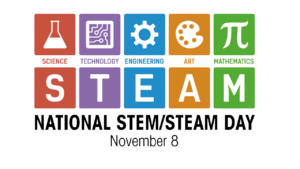Debates about the American education system abound. President Bush touts his “No Child Left Behind” program. Others push for school vouchers so that parents can take their children out of the public education arena and put them in private schools. Still others home school. The reality, however, is that there will always be tension in a system that tries to educate everyone and, at the same time, tries to help gifted students reach their potential. New York Times columnist David Brooks reports that China suffers from no such tension in its educational system, which was designed to identify and educate the intellectually elite [“The Dictatorship of Talent,” 4 December 2007].
“Let’s say you were born in China. You’re an only child. You have two parents and four grandparents doting on you. Sometimes they even call you a spoiled little emperor. They instill in you the legacy of Confucianism, especially the values of hierarchy and hard work. They send you off to school. You learn that it takes phenomenal feats of memorization to learn the Chinese characters. You become shaped by China’s intense human capital policies. You quickly understand what a visitor understands after dozens of conversations: that today’s China is a society obsessed with talent, and that the Chinese ruling elite recruits talent the way the N.B.A. does — rigorously, ruthless, in a completely elitist manner. As you rise in school, you see that to get into an elite university, you need to ace the exams given at the end of your senior year. Chinese students have been taking exams like this for more than 1,000 years. The exams don’t reward all mental skills. They reward the ability to work hard and memorize things. Your adolescence is oriented around those exams — the cram seminars, the hours of preparation. Roughly nine million students take the tests each year. The top 1 percent will go to the elite universities.”
We (in America) think it’s tough getting a student into Harvard. That task looks simple compared to the Chinese system Brooks describes. What about the other 99 percent of Chinese students?
“Some of the others will go to second-tier schools, at best. These unfortunates will find that, while their career prospects aren’t permanently foreclosed, the odds of great success are diminished. Suicide rates at these schools are high, as students come to feel they have failed their parents.”
Before deciding whether such a system will help China become an intellectual and innovative super power, Brooks continues his fictional story of the student who would succeed.
“You ace the exams and get into Peking University. You treat your professors like gods and know that if you earn good grades you can join the Communist Party. Westerners think the Communist Party still has something to do with political ideology. You know there is no political philosophy in China except prosperity. The Communist Party is basically a gigantic Skull and Bones. It is one of the social networks its members use to build wealth together. You are truly a golden child, because you succeed in university as well. You have a number of opportunities. You could get a job at an American multinational, learn capitalist skills and then come back and become an entrepreneur. But you decide to enter government service, which is less risky and gives you chances to get rich (under the table) and serve the nation. In one sense, your choice doesn’t matter. Whether you are in business or government, you will be members of the same corpocracy. In the West, there are tensions between government and business elites. In China, these elites are part of the same social web, cooperating for mutual enrichment. Your life is governed by the rules of the corpocracy. Teamwork is highly valued. There are no real ideological rivalries, but different social networks compete for power and wealth. And the system does reward talent. The wonderfully named Organization Department selects people who have proven their administrative competence. You work hard. You help administer provinces. You serve as an executive at state-owned enterprises in steel and communications. You rise quickly.”
As Brooks goes on to explain, this doesn’t sound much like the communist system that Gen X’ers learned about in high school and college.
“When you talk to Americans, you find that they have all these weird notions about Chinese communism. You try to tell them that China isn’t a communist country anymore. It’s got a different system: meritocratic paternalism. You joke: Imagine the Ivy League taking over the shell of the Communist Party and deciding not to change the name. Imagine the Harvard Alumni Association with an army. This is a government of talents, you tell your American friends. It rules society the way a wise father rules the family. There is some consultation with citizens, but mostly members of the guardian class decide for themselves what will serve the greater good. The meritocratic corpocracy absorbs rival power bases. Once it seemed that economic growth would create an independent middle class, but now it is clear that the affluent parts of society have been assimilated into the state/enterprise establishment. Once there were students lobbying for democracy, but now they are content with economic freedom and opportunity. The corpocracy doesn’t stand still. Its members are quick to admit China’s weaknesses and quick to embrace modernizing reforms (so long as the reforms never challenge the political order). Most of all, you believe, educated paternalism has delivered the goods. China is booming. Hundreds of millions rise out of poverty. There are malls in Shanghai richer than any American counterpart. Office towers shoot up, and the Audis clog the roads. You feel pride in what the corpocracy has achieved and now expect it to lead China’s next stage of modernization — the transition from a manufacturing economy to a service economy.”
China’s develop has indeed been spectacular from the dark days of the Cultural Revolution that nearly time warped it back into the middle ages. But in closing his column, Brooks wonders if a system that stresses memorization over original thinking can really make the transition to the next economic phase.
“In the back of your mind you wonder: Perhaps it’s simply impossible for a top-down memorization-based elite to organize a flexible, innovative information economy, no matter how brilliant its members are. That’s a thought you don’t like to dwell on in the middle of the night.”
With few exceptions, most institutions of higher learning in the United States put more stress on learning how to think than on what to think. Truly innovative people learn to ask questions; because a good question has a much better chance of leading to the right answer. A system that rewards memorization is just the opposite, its stresses what to think over how to think. That is why Brooks believes that Chinese leaders should be kept awake at night wondering if they are going to be able to move from the industrial age into the information age. In terms of sheer brain power, China should have the edge over most other countries; but its greatest natural resource — its people — may be hampered by a system trapped both in the past and in a political system determined to remain in power at any cost. In a post about Educating Girls and Human Freedom, I referred to a column by Thomas L. Friedman [“China Needs an Einstein, So Do We,” New York Times, 27 April 2007]. In that column, he talked about Walter Isaacson’s new biography of Albert Einstein and ended the article summarizing the dilemmas faced by China and the United States:
“My favorite Einstein quotation is that ‘imagination is more important than knowledge.’ A society that restricts imagination is unlikely to produce many Einsteins — no matter how many educated people it has. But a society that does not stimulate imagination when it comes to science and math won’t either — no matter how much freedom it has. So my sense, from reading Mr. Isaacson’s book, is that if Einstein were alive today, he would be telling both America and China that they have homework to do.”
With all the challenges currently facing the world, the more Einsteins we can produce the better we are going to be. Technology, of course, can’t solve all of the world’s woes; but creative minds producing innovative ideas to apply against those challenges have a better of using technology wisely and well. It would also be nice to get a few of those Einsteins into public service so that the world would have the benefit a grand visions that could inspire it to action.




